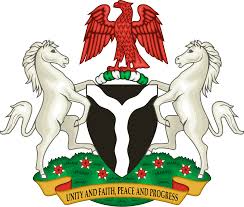FG Grants Citizens Palliative 2025
FG Grants Free Tuition, Housing, and Feeding in Technical Colleges: What Nigerian Students Need to Know
In a bold move to reshape Nigeria’s education and employment landscape, the Federal Government has made education in public technical colleges completely free. Students will not only enjoy free tuition but also free accommodation, free meals, and a monthly stipend of ₦22,500. The FG Grants Citizens Palliative 2025 initiative is part of the newly launched Technical and Vocational Education and Training (TVET) strategy designed to equip young Nigerians with practical, job-ready skills.
With this major investment, the government aims to train five million Nigerian youths in technical and vocational skills by 2030. Read on to learn everything you need to know about the program, its benefits, who qualifies, and how to register.
Why the FG Is Making Technical Education Free
The Nigerian job market is struggling. Many university and polytechnic graduates are finding it difficult to secure employment due to a mismatch between academic qualifications and industry needs. The government hopes that by refocusing education toward skills-based training, more youths will be prepared for real-world opportunities.
Speaking at the launch of the TVET plan, the Minister of Education, Dr. Olatunji Alausa, emphasized that the plan goes far beyond just free education—it’s about economic empowerment, skill development, and job creation.
“We’re not just rolling out another plan,” Alausa stated. “We’re building a system that helps our youth turn talent into tools for success.”
What the Free TVET Programme Offers
Here’s what students enrolled in public technical colleges will now receive under the new federal scheme:
-
100% Free Tuition: No more school fees for technical college students.
-
Free Housing: Students will be provided with free hostel accommodation.
-
Free Meals: Daily feeding will be covered.
-
₦22,500 Monthly Stipend: Each student will receive this allowance to support personal needs.
These benefits are available to students attending both federal and state-owned technical schools in Nigeria.
Focus on Practical, Marketable Skills
Unlike traditional education, the TVET programme is built around the National Skills Qualification Framework (NSQF). This framework focuses on developing competencies that are directly aligned with labour market demands.
Students will gain hands-on experience in fields such as:
-
Carpentry and Furniture Making
-
Plumbing and Pipe Fitting
-
Electrical and Electronics Installation
-
Auto Mechanics
-
ICT and Tech Repairs
-
Fashion and Tailoring
-
Agriculture and Agribusiness
It’s not just about classroom learning. Students will undergo real-world training that prepares them for employment, entrepreneurship, or further technical education.
Teacher Training and Infrastructure Upgrades
The success of this massive project depends heavily on the quality of training. So far, over 3,600 teachers and instructors have been retrained to meet new curriculum standards and deliver effective skill-based education.
Additionally, both public and private training centres are being certified and approved by relevant authorities to maintain high standards across the board.
Support After Graduation
The TVET programme doesn’t end at graduation. The Federal Government plans to support graduates with:
-
Start-Up Grants
-
Business Loans
-
Equipment Starter Packs
These initiatives aim to ensure that students can transition seamlessly from school into business or employment, avoiding the common hurdle of joblessness after graduation.
Breaking the Stigma Around Technical Education
For years, technical and vocational education in Nigeria has been seen as a last resort—something to fall back on if university admission fails. But the government is working hard to change that mindset.
Dr. Alausa emphasized that it’s time for parents, employers, and society at large to see TVET as a first-choice option, not a backup plan.
“TVET leads not just to jobs, but to pride, independence, and purpose,” he said.
Who Can Apply?
This programme is open to all Nigerian students enrolling in public technical colleges, whether operated by the federal or state government.
You don’t need to worry about school fees, accommodation costs, or meals. Plus, you’ll earn a monthly stipend of ₦22,500 to cover your basic needs.
How to Register
The registration process will soon be activated through the Nigerian Education Loan Fund (NELFUND) portal. Applicants will need to:
-
Visit the NELFUND portal (registration link to be provided once live).
-
Create a student profile.
-
Choose your preferred technical college.
-
Upload necessary credentials and identification.
-
Submit your application for review.
Important Note: Admission to technical colleges is still required before registration. Make sure to monitor admission windows at your state or federal technical school of interest.
National and International Partnerships
The Federal Ministry of Education is working closely with:
-
State Governments
-
Private Sector Employers
-
International Development Partners
These partnerships are essential for building a sustainable and scalable technical education system in Nigeria.
The goal is not just education, but employability and economic self-reliance.
Nigeria’s Youth and the Future of Work
With over 70% of Nigeria’s population under the age of 30, investing in youth skills is critical. This programme is a timely step toward tapping into that youthful energy for national development.
Whether or not it succeeds depends on collaboration among:
-
Government at all levels
-
Students and parents
-
Training institutions
-
Employers
Final Thoughts
The Federal Government’s new free technical education initiative represents more than just a tuition waiver—it’s a comprehensive, life-changing opportunity for young Nigerians to gain valuable skills and build a stable future.
From free housing and meals to job-ready training and post-graduation support, this plan could mark a turning point for millions of youths across the country.
If you’re a student, parent, or guidance counselor, this is the perfect time to consider technical and vocational education as a top career path.





